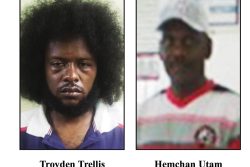The confrontation between the Government and the Georgetown City Council has gone on for far too long and should now come to an end. The Government, having overall responsibility for the welfare of all the citizens of Guyana, including of Georgetown, and being the senior party, ought to take the responsibility for ending the decades old stand-off. The long-standing antagonism subsided for a brief period when Ranwell Jordan of the PNC was elected Mayor and Philomena Sahoye-Shury of the PPP as Deputy Mayor in 1995. The agreement was that the parties would change places halfway into the mayoral term. The arrangement collapsed when Jordan refused to resign at the time when Sahoye-Shury was due to replace him. This agreement fell victim, like all other agreements before and after it, including an agreement to collaborate for the election of a Mayor for Region 8 in 2006, to the enduring grip of the drive for dominance in our politics.
The stand-off is currently rooted in three main issues, namely, lack of resources, financial accountability and mistrust. There is, of course, the broader issue of Government (PPP)/Opposition (APNU) relations. Perpetually bad, these relations are now at their lowest ebb, bedeviled by competitive hostility, while the ethnic entrepreneurs are working overtime to keep them there. But if the political conditions in Guyana are ever to be transformed, in the absence of an overarching solution, which is not likely anytime soon, it needs to start somewhere, and Georgetown perhaps offers the best opportunity. Why? The PPP can never win the Mayoralty and the majority of seats on the City Council. But it needs a functioning City Council to assist with the management of the City, which is in the process of transformation. The transformation will become more intense and unless the Government wants it to continue haphazardly, it needs negotiated outcomes with the City Council.
The City Council does not have access to adequate resources and is not likely to have any time soon. My home was built in 1980 on land in a compound owned by my father. It has never been independently assessed. The compound was apportioned in house lots and some of them have houses. The rates and taxes that were being paid by my father are still being paid by me. Both the Government and the City Council are aware of this situation, but neither is willing to antagonize the residents of Georgetown by increasing rates and taxes. The City Council will therefore remain perpetually starved of funds. The necessity for the Government to continue to finance works that are the City’s responsibility will remain. The first order of business, therefore, is to audit the City’s finances. The Government needs to assist the City Council in this process and thereafter seek an agreement for collaboration in spending resources that the Government may wish to advance. Keeping the city clean and drained is an area of potential collaboration. To have areas of the City cleaned when the President visits and orders it is not an effective way.
This modest beginning can lead to improved relations and more effective management of the City’s affairs. If it is successful, other areas can be brought into collaborative management and innovative ways found for fundraising, such as a revised and affordable fee for parking in the City, which was tried earlier and rejected because of the burdensome charges. Some services of the city, such as receiving rates and taxes are speedy and effective, but other statutory services such as building permission are not easily or speedily accessed. I believe that most people know why. If reasonable timelines are set, having regard to the skilled technicians available to the City Council, including the employment of private resources to assist, and the timelines are made public, it would enhance the reputation of the City Council and Government.
From a broader perspective, collaboration between the Government and Opposition in Regional Democratic Councils (RDCs) and Neighbourhood Democratic Councils (NDCs) ought to be pursued more vigorously so that their constituents would have better services and the political climate would improve. If the Government and Opposition decide to change course in the Georgetown City Council, it will have spinoff effects all the way down. It is very difficult to comprehend how Guyana can move forward in a high-tech business environment and promoting high-tech development in a political environment, riven by ethno-political domination, that has remained static since 1957 and is ‘trogdalitically’ backward. If we cannot get on at either the national or the local level, no one can rationally expect that we will be able to take full advantage of the bounties that petroleum resources will provide. The City Council cannot manage its business effectively and efficiently and the Government cannot manage it for them. It is in everyone’s interest that we have a City Council that is functioning in the interests of City dwellers and vast local and foreign investments that are being made and will be made in the City.
(This column is reproduced with permission from Ralph Ramkarran’s blog, www.conversationstree.gy)









